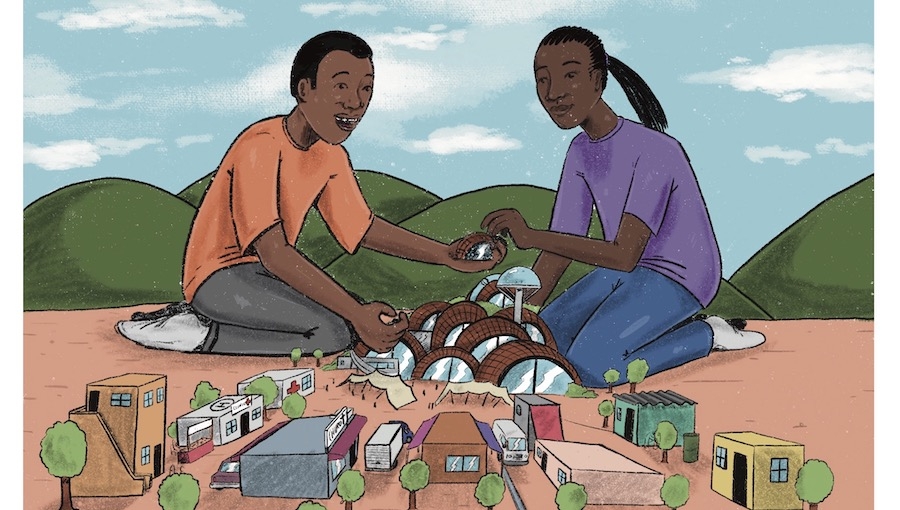The following is an interview with Prof. Bella Starling regarding the recent release of One for All, All for One – an ambitious multimedia project that merges comics, film, and public events to create a compelling and timely look at the importance of immunization and vaccination narratives. In this interview, Fanbase Press Editor-in-Chief Barbra Dillon chats with Starling about her experience in shepherding the project to its conclusion, how you can get involved with educating others about vaccines and immunizations, and more!
Barbra Dillon, Fanbase Press Editor-in-Chief: Congratulations on the recent launch of One for All, All for One! For those who may be unfamiliar, how would you describe the premise of this project, and what was its inspiration?
Bella Starling: Thank you. We’re so excited to see the project come to life! We set out with the ambition of creating a different kind of conversation about immunisation and vaccination. As a global team of scientific researchers, creative practitioners, and community engagement specialists, we wanted to co-create a narrative that could contribute to building mutual trust between medicine and society. In particular, we wanted to emphasise collectivity: how vaccination can benefit everyone, not just the individual, and protect the most vulnerable (community immunity) and how, by working together in scientific research, we can produce research that is most relevant to the needs of society.
BD: How did you each come to be involved in the project, and how would you describe your shared creative process in bringing it to life?
BS: Myself and Rob Heyderman started discussions about the project way back in 2018. We started talking to others we knew about it, collectively planned the idea a bit more, then put in a funding application which, luckily, was successful! The guiding principle of the project was to focus on the creative process. It was really important for us to listen to different people, understand everyday concerns and ideas, and to make the characters and storyline engaging, informative, and fun! Throughout, we adopted a participatory approach. With a team led by our colleague Rodrick in Malawi, and the creative team of young adults in South Africa, led by Nabeel, we worked with young parents, community members, faith leaders, researchers, and healthcare staff to develop the comic, through a series of workshops, script development and visual referencing.

BD: At Fanbase Press, our #StoriesMatter initiative endeavors to highlight the impact that stories can have on audiences of various mediums. How do you feel that Tadala and Mayeso’s story will connect with and impact readers?
BS: It’s great to hear more about your #StoriesMatter initiative. Stories have the power to persuade, connect emotionally, and be a force for social change. We hope that, because our narrative, characters and storyline were co-created with so many people, they are relatable and reflect real-life situations, while at the same time providing some infotainment! We will be pursuing further research about the impact of the comics. We have already gathered some baseline data about how communities feel about vaccination in Malawi. Now, we are going to share the comic with these communities, and see what difference (if any!) reading the comic might make to attitudes and understanding of vaccination and working together in research.
BD: For readers who are interested in getting more involved with educating others about vaccines and immunizations, are there any organizational websites that you would recommend to get them started?
BS: For sure! Check these places out. They might not be as entertaining as our comic, but they’re full of useful information:
WHO
WHO How to talk about vaccines
Vaccines Safety Net
Vaccine confidence project

BD: Lastly, what would you like to tell readers who want to learn more about One for All, All for One?
BS: One for All is a participatory engagement project where we listened to people’s views or concerns about vaccines and community immunity so we could co-create a comic that addressed real-life experiences. It’s not a public health campaign, but a way of opening up conversations, and helping to build trust between science and society. Our process was really important to us – working closely with those most affected by everyday decisions about vaccination, to create a story and characters that are important, relatable, and fun! We really hope that the comic can be used by lots of people to stimulate discussions in all kinds of different places. Do get in touch if you’d like to find out more!

